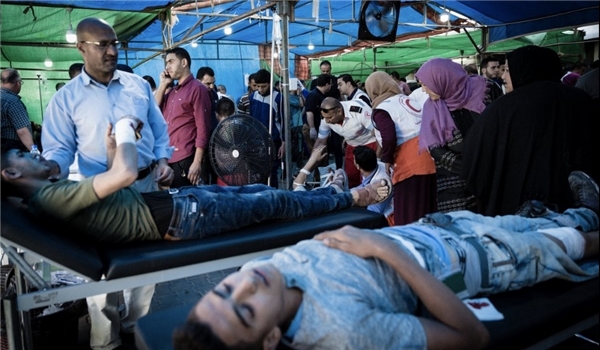
MSF added that most of those wounded were shot in the legs, often resulting in open fractures prone to infection.
According to the charity group, untreated wounds could lead to lifelong disability for many, and untreated infections pose the risk of “amputation or even death”.
"This many patients would overstretch the best healthcare systems in the world. In Gaza, it is a crushing blow," Marie-Elisabeth Ingres, MSF's chief for the Palestinian territories, stated in a statement.
The NGO called on the Tel Aviv regime to allow those patients out of the blockaded strip for necessary treatment and for governments to offer their medical facilities for the wounded.
"The alternative --- that thousands of patients will be left to deal with terrible injuries, with many permanently disabled and dependent on their families --- is unconscionable when adequate treatment is within the world's grasp," MSF noted.
For more than seven months, Palestinians in the Gaza Strip have demonstrated along the fence demanding their right to return to the homes and land their families were expelled from 70 years ago. The Great March of Return rallies culminated on May 15 to mark what Palestinians refer to as the Nakba, or Catastrophe - a reference to the forced removal of 750,000 Palestinians from their homes and villages to clear the way for Israel's establishment in 1948.
Nearly 240 Palestinian protesters have been killed and more than 23,000 Palestinians injured by Israeli forces since the outbreak of the Great March of Return rallies at Gaza border in late March.
Most of the casualties occurred on May 14 when Israeli forces attacked Palestinians marking the 70th anniversary of Israel’s occupation of historical Palestine and the ensuing ethnic cleansing of half a million Palestinian refugees.
847/940